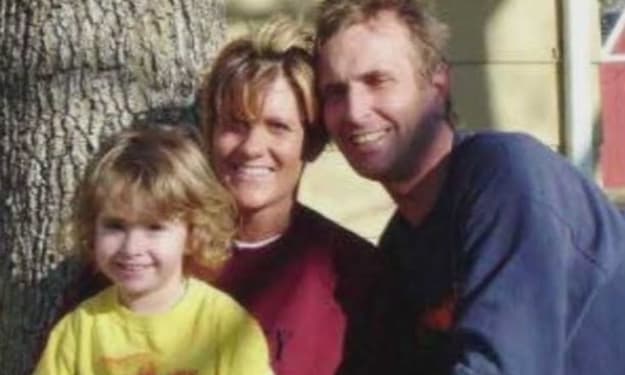Ethical dilemma of trust
Belief in the Face of Damning Evidence

Imagine a scenario: you're sitting on the couch, engrossed in your TV show, when an unexpected knock on the door shatters your peace. The police have arrived to arrest your spouse for a murder you never saw coming. Shock consumes you as you struggle to reconcile the gentle and loving person you know with this grisly accusation. The evidence seems damning; your spouse's fingerprints were found on the murder weapon. However, they insist on their innocence, pleading with you to believe them when no one else will. This situation raises a profound ethical dilemma, delving into the field of the ethics of belief and our duty to hold certain convictions.
It's crucial to clarify that this dilemma doesn't concern your role in a court of law or determining your spouse's guilt or innocence. Instead, it focuses on what you should believe to be true. To form beliefs, evidence naturally emerges as a significant factor. After all, belief entails accepting something as true, and evidence serves as the means to establish truth. Some philosophers, known as evidentialist, argue that evidence should be the sole determinant of our beliefs. They advocate for an objective evaluation of the evidence, urging us to view it from a neutral standpoint. According to this perspective, your judgment of your spouse's character, influenced by personal bias, becomes secondary to the stronger evidence of their fingerprints at the crime scene. Evidentialists would suggest either believing your spouse is guilty or, at most, remaining undecided.
While evidentialism often presents itself as a rational view, other philosophers, such as W.K. Clifford from the 19th century, argue that following the evidence is also morally obligatory. They believe that well-informed and accurate beliefs play a vital role in guiding ethical actions. Refusing to follow the evidence, they argue, can be seen as a form of self-dishonesty and unethical behaviour.
However, this ethical dilemma may encompass additional factors. Despite the compelling evidence against your spouse, there remains a chance of their actual innocence. Contemplate for a moment the feeling of being innocent but having no one, not even your partner, believe in you. By choosing not to trust your spouse, you risk inflicting significant harm on them during their hour of need.
Furthermore, consider the impact of this lack of trust on your marriage. It would be extraordinarily challenging to sustain a loving relationship with someone you believe, or even strongly suspect, to be a murderer. Pretending to believe in their innocence may be tempting, but can you genuinely live that lie? In a theory called pragmatism within the ethics of belief, practical considerations sometimes justify believing something even in the absence of strong evidence. Some pragmatists argue that you have a moral obligation to believe your spouse, emphasizing the importance of preserving trust and supporting them. However, can you control your beliefs as you do your actions? Despite desperately wanting to believe in their innocence, it may not be as simple as choosing a belief when confronted with glaring truths.
- Evidentialism: Evidentialism asserts that beliefs should be based solely on the available evidence. From this standpoint, one should objectively evaluate the evidence, including the presence of the spouse's fingerprints on the murder weapon, and either believe in their guilt or remain undecided. According to evidentialism, personal bias or emotional attachment should not influence the assessment of evidence.
- Pragmatism: Pragmatism emphasizes the practical consequences of beliefs. Considering the potential harm to the spouse and the strain on the relationship, some pragmatists argue that it may be morally justified to believe in the spouse's innocence, even without strong evidence. They argue that it could be the right course of action to support the spouse and preserve the relationship, as long as it doesn't involve denying or disregarding the truth.
- Trust and relationship: Trust and the impact on the marital relationship are significant factors to consider. The lack of trust can have severe consequences for the spouse's well-being and the future of the relationship. Choosing not to believe the spouse may cause emotional harm, even if they are later proven innocent. The question of whether you can maintain a loving relationship with someone you believe to be a murderer arises here.
This ethical dilemma challenges us to navigate the complex interplay between evidence, trust, personal relationships, and our moral obligations. Striking a balance between rationality, moral duty, and emotional considerations is an arduous task. It necessitates introspection, thoughtful reflection, and a nuanced understanding of the intricate nature of belief formation and its impact on the people closest to us.
About the Creator
Jerald Wilson
"Warning: Reading this blog may cause uncontrollable bursts of laughter, sudden moments of enlightenment, and an overwhelming desire to share it with all your friends. Proceed at your own risk!"
Enjoyed the story? Support the Creator.
Subscribe for free to receive all their stories in your feed. You could also pledge your support or give them a one-off tip, letting them know you appreciate their work.






Comments
There are no comments for this story
Be the first to respond and start the conversation.